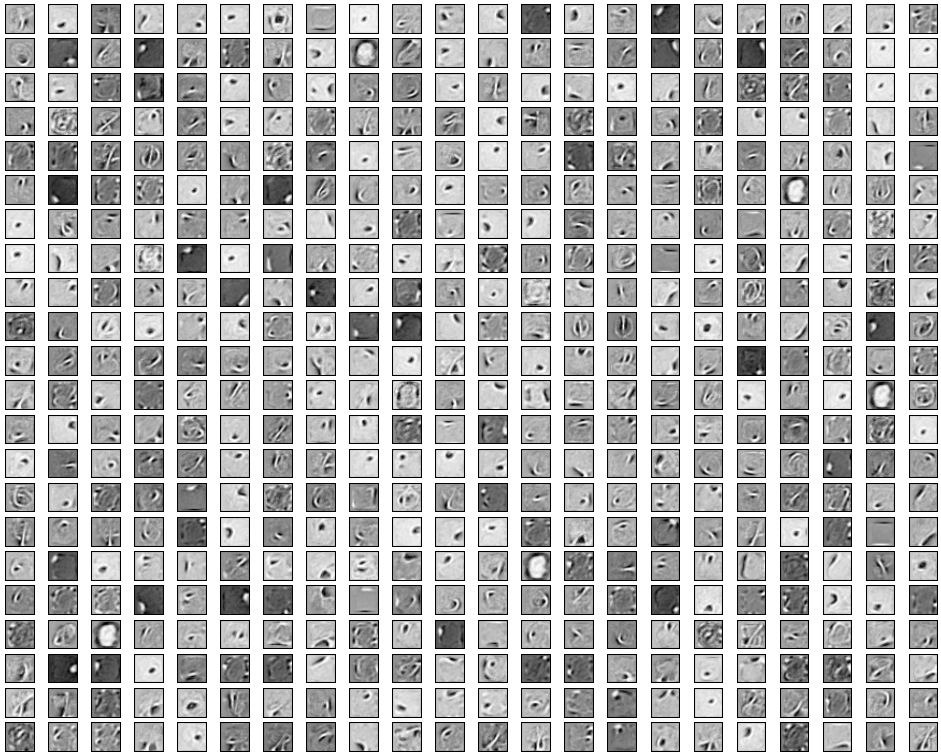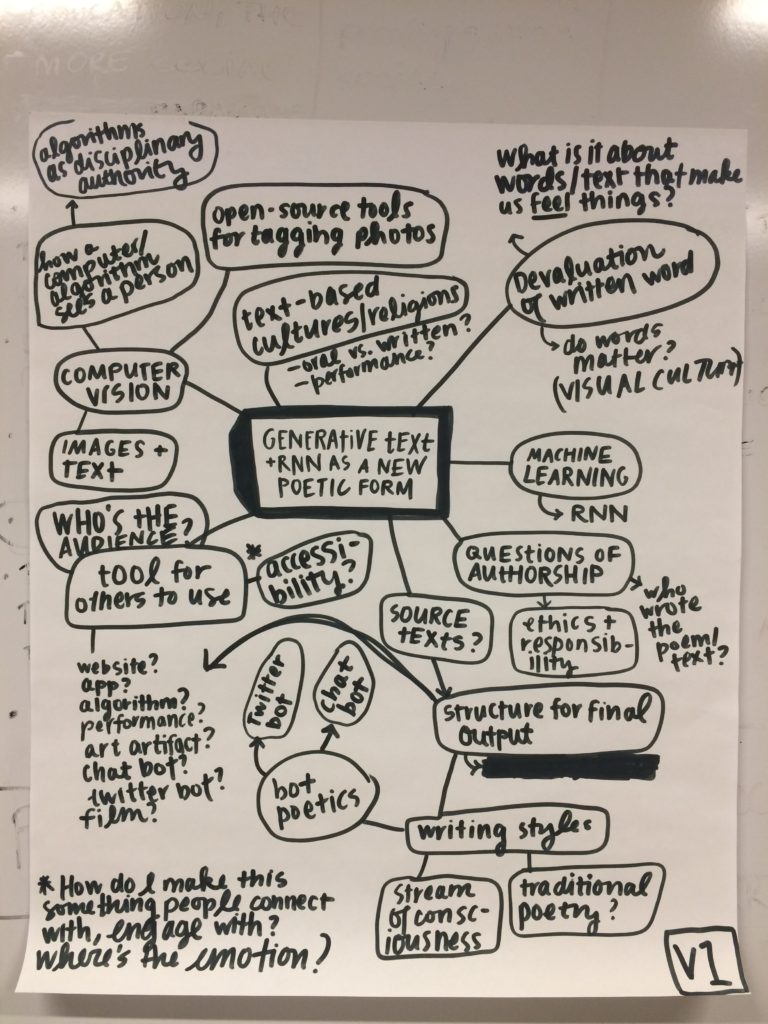
Project proposal.
I intend to use this class to explore generative text as a new poetic form, culminating in the production of some kind of physical or digital artifact.
Over the coming semester, I will conduct a series of text-based experiments using deep learning methods such as Recurrent Neural Networks (RNNs) for sequence learning and Convolution Neural Networks (CNNs) to classify images and text. I’ll also use Python (w/ Flask), Javascript (w/ Node), and Natural Language Processing (NLP) libraries in both of those programming languages. The goal behind these experiments is to teach myself different ways of training a computer program on text to generate something new.
I’m still not sure what form the final artifact will take, whether it’s a physical book, an installation, an interactive web-based tool, a chatbot, a mobile app, or otherwise. My hope is that the form will eventually emerge through my experimentation.
Some major questions I still have about this work deal with the audience response. What can I build that will elicit an emotional response? Will people understand the intent of this project? How will they connect with it if they aren’t writers/readers/theorists?
Here’s the project map I sketched out during our class activity:
Next steps.
Since I’m still unfamiliar with some of the tools I’d like to use, for the first few weeks I intend to teach myself the basics of deep learning. I plan on using resources from Gene Kogan’s course Machine Learning for Artists, Patrick Hebron’s course Learning Machines, and Andrei Karpathy’s amazing work on RNN. I’m going to build a week-to-week schedule to lend some structure to my experimentation. I’m taking another Javascript-based generative text class right now, so my experiments might align with that class as well.
Resources & inspiration (an ongoing list I will update).
- Harry Giles on the strategies of Bot Poetics
- Lynn Cherney on story generation
- Darius Kazemi (a/k/a @tinysubversions) on How to Coax Soul from Machine


I love the image Becca – very cool. Some things to consider is how technology factors into the poetic process – are you familiar with Oulipo poetry? You likely are – but if not it’s an analog form of generative poetry that is based on overlaying lenses and parameters on texts to create new works. The goal was re-contextualization. Generative poetry in a digital format has so many possibilities – especially the inclusion of other senses and environments. To me, pushing this form – really pushing it through the magic of 1’s and 0’s will more likely create a space for non-poets to enter…